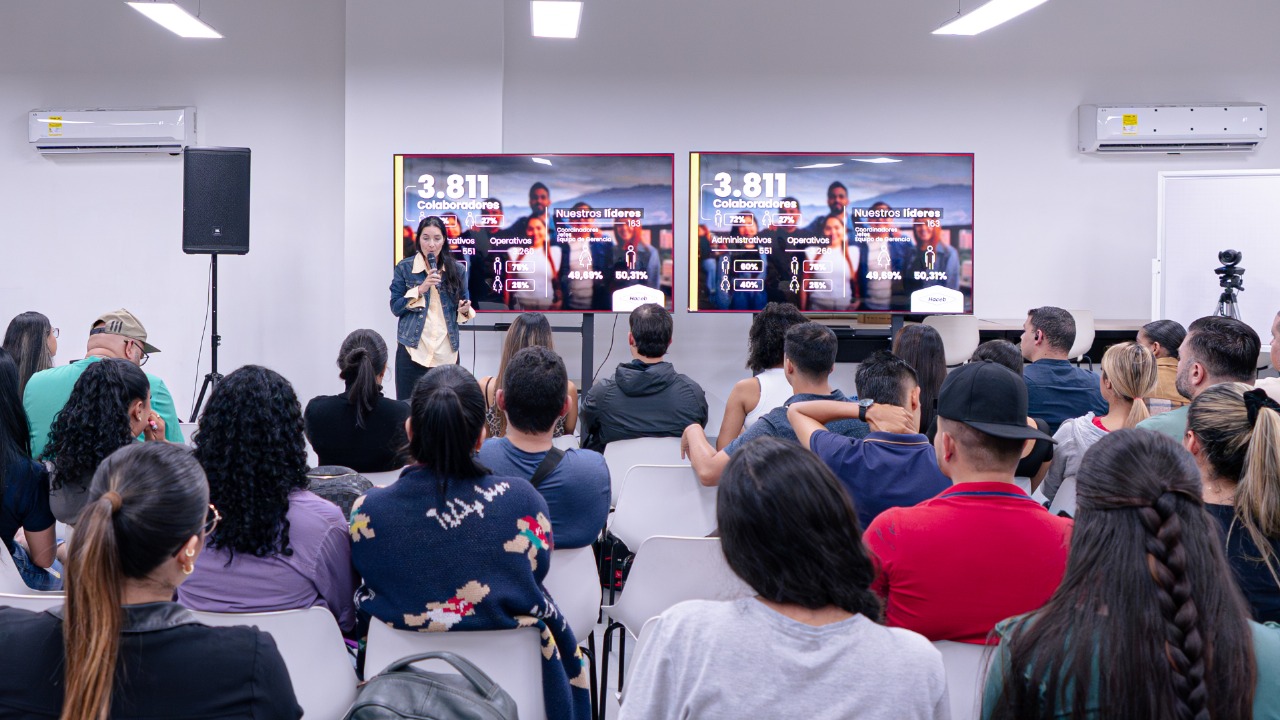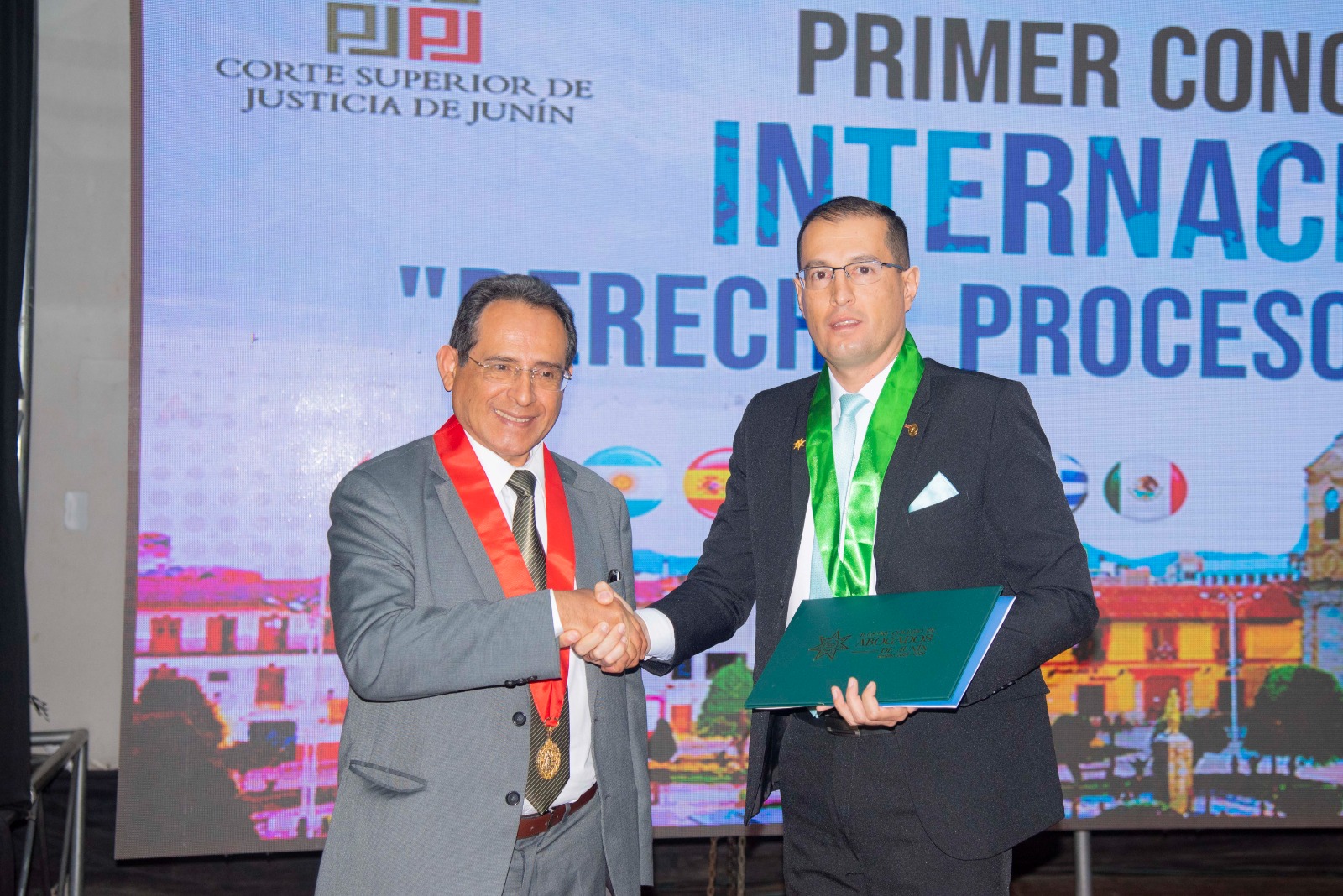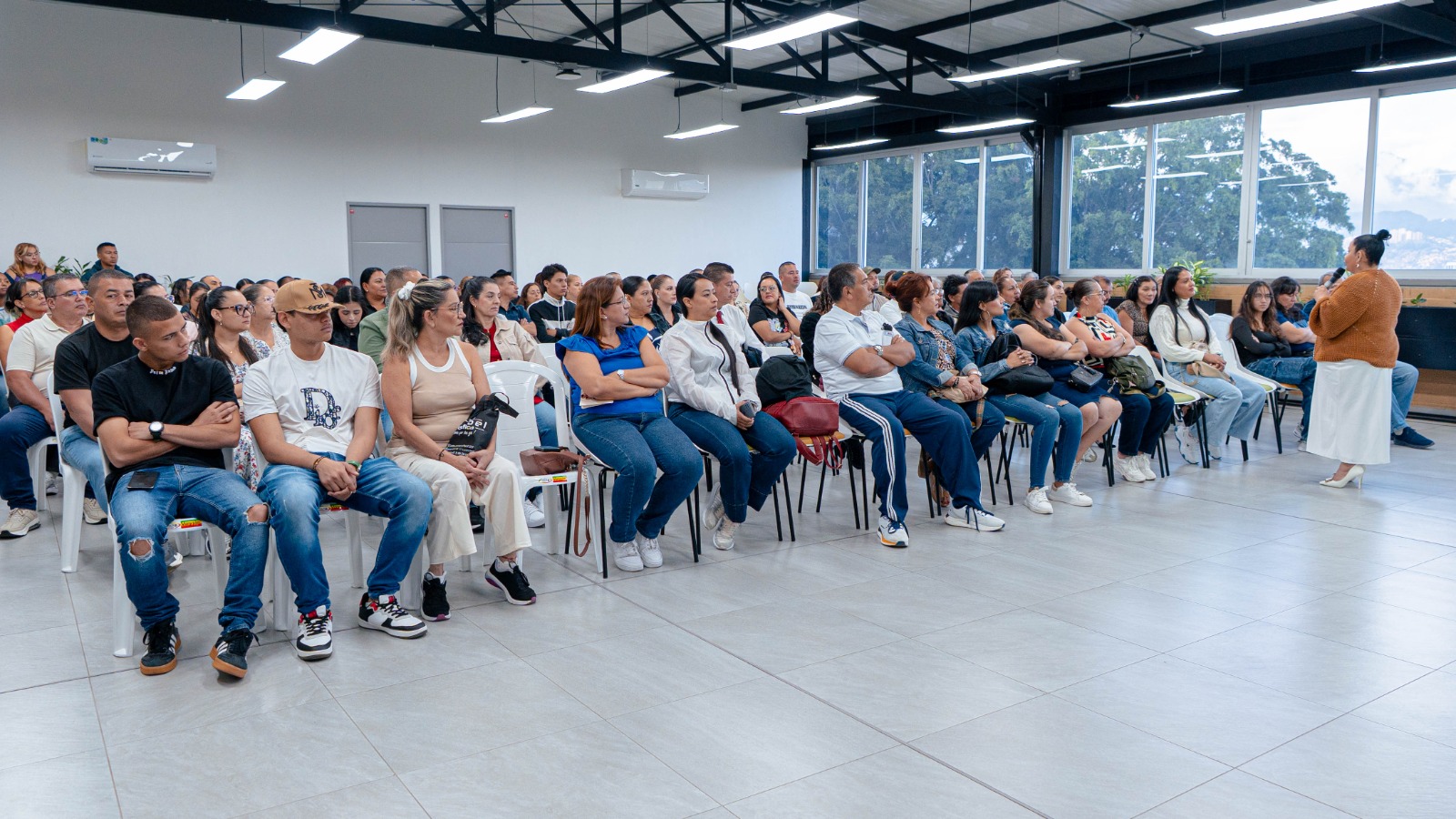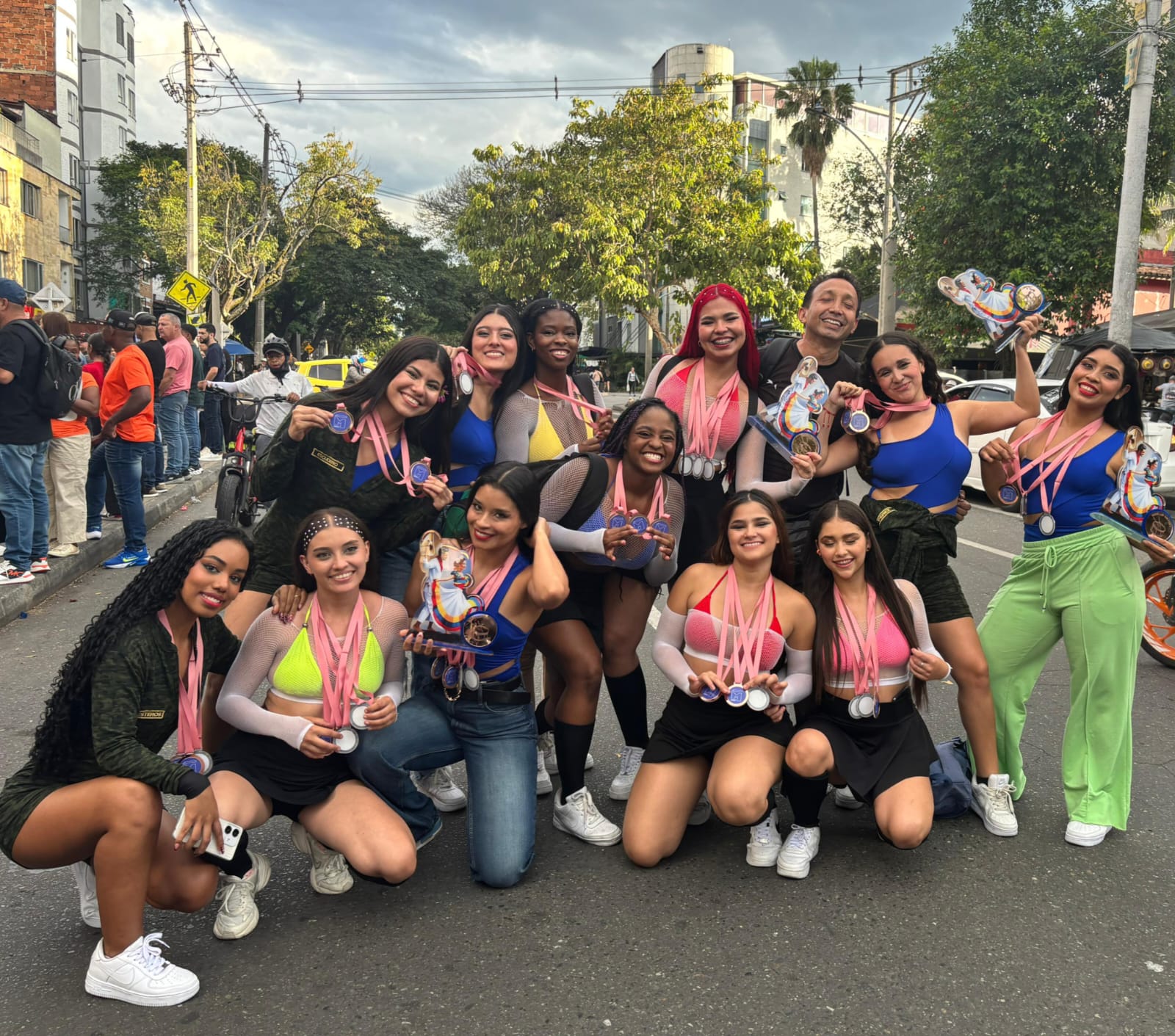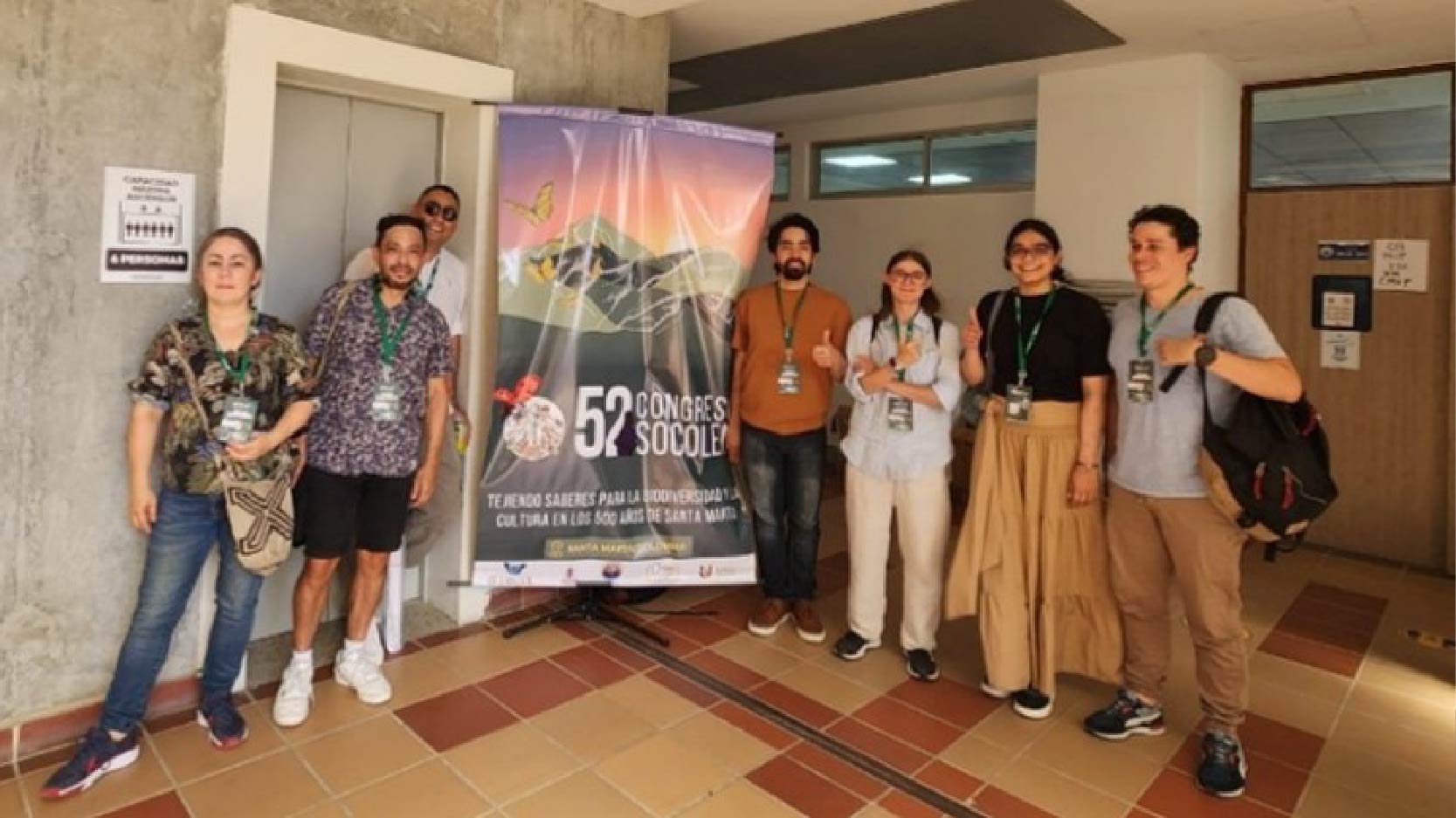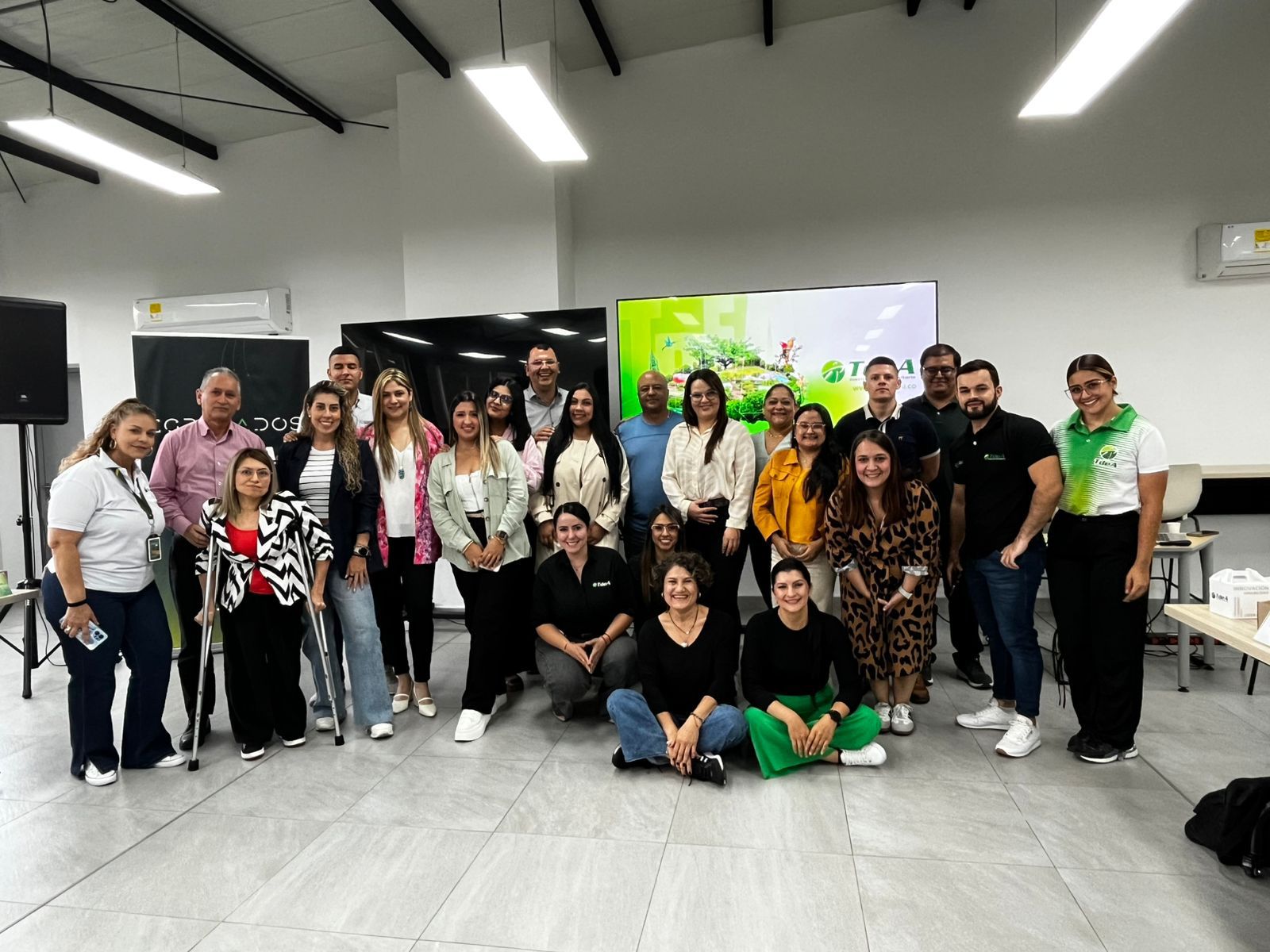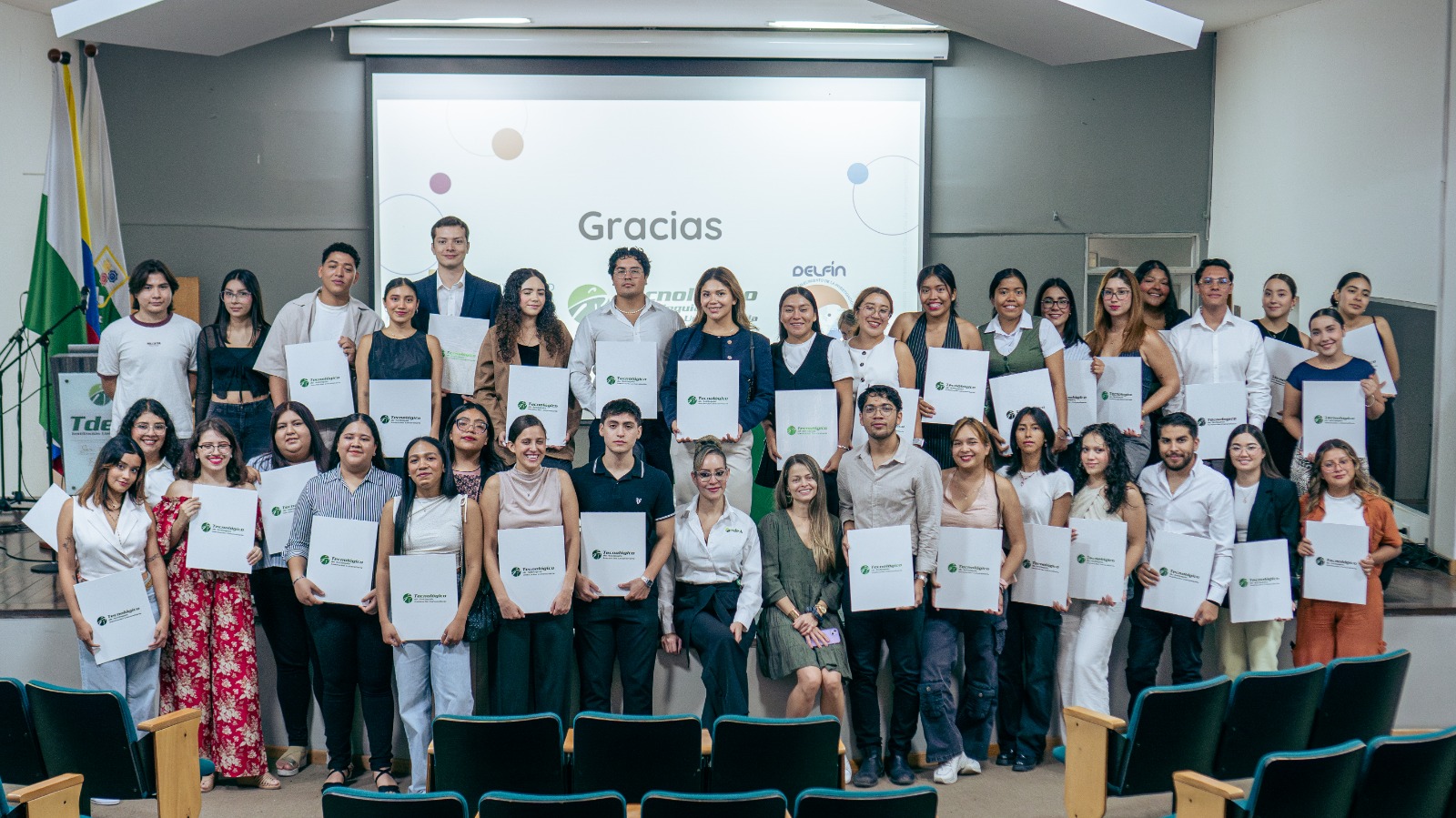Docente TdeA, reconocido por su aporte a la justicia en Latinoamérica
El abogado y docente del TdeA Institución Universitaria, adscrito a la Facultad de Derecho y Ciencias Forenses, José Mauricio Arredondo del Río, recibió un reconocimiento por parte de la Corte Superior de Justicia de Junín, del Perú, y fue incorporado como miembro honorario del Ilustre Colegio de Abogados de Junín. Este hecho meritorio tuvo lugar en el Primer Congreso Internacional “Derecho, Proceso y Justicia”, organizado por la alianza de ambas instituciones y realizado en Huancayo, Perú, del 5 al 16 de agosto.



